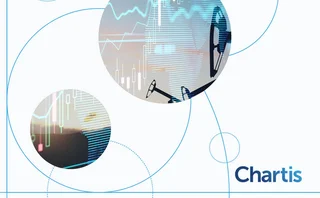
Remit delegated reporting leaves unanswered questions
EU energy traders have until October to begin reporting the details of standard power and natural gas trades to regulators under Remit. But the exact process by which many of these initial contracts will be reported remains blurry

For many energy trading firms, the reporting requirements of the European Regulation on Wholesale Energy Market Integrity and Transparency (Remit) have long seemed somewhat distant. The law, which bans market manipulation and insider trading in physical and financial power and natural gas, first entered into force in 2011. But the introduction of trade reporting under Remit could not begin until after the adoption of long-awaited implementing acts by the European Commission (EC).
Those implementing acts were finally published on December 18 last year. As a result, Remit's trade reporting regime is now fast coming into view, with a deadline for the first wave of contracts to be reported set for October 2015. Under Remit, both trades and orders to trade will have to be reported to registered reporting mechanisms (RRMs), which will forward the data to the Agency for the Co-operation of Energy Regulators (Acer), the Slovenia-based EU regulator. However, the exact process by which many of these initial transactions will reach the regulator remains far from clear. Market participants are frantically trying to flesh out the idea of ‘delegated reporting', which allows trading venues to report on their behalf. Although it was hoped the details of this would be made explicit by the EC's implementing acts, they seem to have left plenty of unanswered questions.
"People are worried about how delegation will work," says Filip Sleeuwagen, Brussels-based co-chairman of the transaction reporting workgroup at the European Federation of Energy Traders (Efet). "The delegation concept is seen by the regulator as an efficient manner for market participants to hand over the data without much burden. But in practice it is far more complicated than that."
A tough act to follow
Under the implementing acts, energy trading firms have until October 7 to begin reporting details of their standard contracts and until April 7, 2016, to begin reporting for non-standard contracts. The acts define standard contracts as those admitted for trading on organised marketplaces (OMPs), or any type of platform that brings together multiple third parties, such as exchanges and brokers. The definition of non-standard contracts, conversely, comprises everything else.
Because the contracts to be reported from October 7 are by definition those traded on OMPs, the issue of delegated reporting is crucial. The implementing acts say OMPs will be required to offer a data reporting agreement at the request of market participants. At the same time, however, market participants must "take reasonable steps to verify the completeness, accuracy, and timeliness of the data" when delegating to a third party.
The big risk right now is that the whole thing is a chaotic mess and nobody has sight of all the data that goes in
Energy trading firms say this means they need to have a sufficient degree of control over what is being reported on their behalf. Simply delegating reporting to OMPs and letting them get on with it is not an option, market participants suggest. "The worst-case scenario is you would not have any choice in the matter," says a compliance analyst at a UK-based utility. "You can ask the OMP to report on your behalf, but you are bound by what they want to do with that data."
Perhaps the trickiest challenge posed by delegated reporting is that the data required by Remit is scattered across the market. For standard contracts, energy trading firms must complete 58 data fields, including the trading hours of the contract and whether trades are brokered over the phone, for instance. Some pieces of information, such as the details of unfilled orders to trade, are likely to be held only by trading venues. Others might only reside with the counterparty to the transaction – for instance, information relating to whether over-the-counter transactions have been assigned or terminated.
Effectively, this means delegated reporting needs to be a two-way process. "Most, if not all, market participants are not in a position to have systems that deal with order data," says Efet's Sleeuwagen. "So the common understanding is you need your OMP to actually kick off the reporting, but given the complexity of the reporting, you will still need to intervene as a market participant to enrich certain elements of this, or to complete it afterwards for life cycle events."
This increases the importance of the role played by RRMs, which should become an aggregation point for data from market participants and OMPs, believes Hugh Brunswick, managing director of EFETnet, the operational services arm of Efet. That could simplify the process of reporting, while allowing firms to monitor and control the information before it gets fed into the Acer Remit Information System, the regulator's database. "It's in the interest of market participants to simplify their operational processes, and that really means putting all the data in one place," says Brunswick. "The big risk right now is that the whole thing is a chaotic mess and nobody has sight of all the data that goes in."
The process of delegated reporting could become yet more complicated if market participants and OMPs go separate ways in terms of which RRM they use for reporting, Brunswick notes. The implementing acts say OMPs "shall at the request of the market participant offer a data reporting agreement", but they do not stipulate that the RRMs used for this task should be the same. "You can see a situation where not all OMPs are going to want to use all the preferred RRMs of their clients," he says.
For instance, a market participant might have a connection to a particular RRM, but be trading electricity futures on an exchange that only offered connectivity to a different RRM. In this situation, the participant would have to either connect to the new RRM, or rely on the exchange to send it the right data so it can report through the RRM of its choice – something the exchange might not necessarily be eager to do. If trading venues undertaking delegated reporting could just agree to use the same RRM as their clients, it would "reduce the headache" associated with Remit reporting, says Brunswick.
Efet is hoping to address this problem, among others, by coming up with a standard agreement for the reporting of trades through third parties. The group is keen to ensure market participants can report to the RRM of their choice when using delegated reporting, and that the rights and responsibilities of each party to the arrangement are made clear. Since December 2014, Efet has approached both the London Energy Brokers' Association (Leba) and Brussels-based Europex, an association of European energy exchanges, to hold separate talks on the idea.
At the time this article went to press, discussions between Leba and Efet were said to be ongoing. But sources familiar with the matter say talks between Efet and Europex broke down in late January. Exchanges are said to prefer the idea of striking individual agreements with market participants, with one source saying they would be "scared stiff" of sharing data that could potentially be used to undermine their market power. Europex declined to comment.
"There is obviously a point where we need to be realistic and understand there will be OMPs who will not agree," says Efet's Sleeuwagen. He says that energy trading firms should, at a minimum, ensure RRMs can exchange data on behalf of clients using Acer XML, the regulator's standard electronic format for trade reporting.
The lack of a common language for reporting was one of a number of problems faced by market participants attempting to report the details of their derivatives trades under the European Market Infrastructure Regulation (Emir) last year. Emir, which entered into force in August 2012, requires derivatives to be reported to trade repositories in much the same way Remit requires energy contracts to be reported to RRMs. But the imposition of Emir reporting has been beset by difficulties. One of the challenges was that unique trade identifiers (UTIs) – 52-character codes required to be generated and assigned to every transaction – were not identical for each side of the same trade. A further setback was that, even if the UTIs did match, the electronic language used by various trade repositories was not the same. Acer XML should solve at least one of these issues.
Going it alone
Not all firms are content with the idea of relying on OMPs to satisfy their obligations under Remit, with a number considering the possibility of setting up their own systems. Out of five energy trading companies contacted for this article, none rejected the possibility of self-reporting – something that would require registering as an RRM themselves.
Riccardo Rossi, London-based senior analyst for regulatory affairs at Gazprom Marketing & Trading, the trading arm of the Russian gas giant, says the firm is busy comparing requirements in the implementing acts with the data available in its systems to decide how to move forward. "We are considering all options, including to have our own mechanism for reporting to Acer directly," he says. "It requires a lot of additional processes. Among the options it does not seem like the best one, but it is still on the table as a less attractive possibility."
In principle, both regulators and market participants are eager to reduce the number of parties involved in reporting under Remit, limiting the complexity of the process. The role of RRMs was originally envisioned as one way of achieving this, say regulators. Nonetheless, many market participants say they are expecting to look at multiple reporting routes to fulfil their obligations.
"For sure, the best approach is to have a single RRM or to use the lowest number of RRMs as possible," says Nuria Jimenez, Madrid-based IT head of Remit implementation at Spanish utility Endesa. The company is considering a "mixed model" of reporting, she says: "In some cases, we are going to delegate to a third party, in other cases we are going to report ourselves."
Endesa is carrying out a case-by-case analysis of its brokers and exchanges to determine what this system will look like, says Jimenez. But her main concern is about how the process will work going forward. "In general, the market now is focused on the reporting side, but the complexity lies after that in how to automatise the compliance side, making sure data is reported in the right format, on the correct dates," she explains.
This is not the only problem that lies ahead. Some consultants believe a focus on getting to grips with reporting may be distracting firms from making sure their trading behaviour complies with Remit's anti-manipulation and insider trading provisions. They point to the low take-up of trade surveillance technology among energy trading firms, which was highlighted by a recent Energy Risk survey (see box: Missing the point?).
Taking a register
Which firms might emerge as RRMs is another unresolved question lingering over Remit. A number of exchanges, vendors and Emir trade repositories have said they intend to register. They include EFETnet and the Leipzig-based European Energy Exchange (EEX). Some of these companies, like EEX, already run Remit transparency platforms, which allow market participants to publicly disseminate inside information under the law.
However, the final number of companies that will become RRMs is hard to determine. Acer's online Remit portal contains a list of RRMs, but as this article went to press, it remained empty. In an emailed statement, Acer says the agency will publish the names of RRMs once they are approved by the agency. "A significant number of applicants have already started the RRM registration process. The list of RRMs will be published in due course," the statement says.
There are worries that the number of RRMs might become unmanageable for Acer, particularly if a large number of energy trading firms decide to register as RRMs themselves. Consultancy firm Sapient Global Markets is another firm that says it is interested in becoming an RRM. Owen LaFave, its London-based director of commodities regulation, cites estimates that there could be as many as 120 or 150 RRMs, a number that would include many self-reporting firms. But despite the concerns, an Acer spokesperson says the regulator is prepared for such an outcome. "Companies need to register as RRMs if they opt for self-reporting and Acer systems are prepared for that possibility," he says.
In the meantime, the onus appears to be on market participants and trading venues to ensure they get their act together before October 7. "It is not a luxury position to be in, knowing that this whole thing needs to be up and running in nine months," says Efet's Sleeuwagen. "The ground rules of the entire first phase depend on how the delegation will work from a legal, operational and technical perspective, and that is far from clear today."
Missing the point?
Only users who have a paid subscription or are part of a corporate subscription are able to print or copy content.
To access these options, along with all other subscription benefits, please contact info@risk.net or view our subscription options here: http://subscriptions.risk.net/subscribe
You are currently unable to print this content. Please contact info@risk.net to find out more.
You are currently unable to copy this content. Please contact info@risk.net to find out more.
Copyright Infopro Digital Limited. All rights reserved.
As outlined in our terms and conditions, https://www.infopro-digital.com/terms-and-conditions/subscriptions/ (point 2.4), printing is limited to a single copy.
If you would like to purchase additional rights please email info@risk.net
Copyright Infopro Digital Limited. All rights reserved.
You may share this content using our article tools. As outlined in our terms and conditions, https://www.infopro-digital.com/terms-and-conditions/subscriptions/ (clause 2.4), an Authorised User may only make one copy of the materials for their own personal use. You must also comply with the restrictions in clause 2.5.
If you would like to purchase additional rights please email info@risk.net
More on Energy
ETRM systems 2024: market update and vendor landscape
This Chartis report evaluates energy trading and risk management systems that provide front-to-back, asset class-specific and geography-specific coverage, and considers the full energy trade lifecycle
CTRM systems 2024: market update and vendor landscape
A Chartis report on commodity trading and risk management systems that considers its different applications and addresses the market and vendor dynamics to determine the long-term and structural impacts of the overarching market evolution on the…
Energy Risk Commodity Rankings 2024: markets buffeted by geopolitics and economic woes
Winners of the 2024 Commodity Rankings steeled clients to navigate competing forces
Chartis Energy50
The latest iteration of Chartis’ Energy50 ranking
Energy trade surveillance solutions 2023: market and vendor landscape
The market for energy trading surveillance solutions, though small, is expanding as specialist vendors emerge, catering to diverse geographies and market specifics. These vendors, which originate from various sectors, contribute further to the market’s…
Achieving net zero with carbon offsets: best practices and what to avoid
A survey by Risk.net and ION Commodities found that firms are wary of using carbon offsets in their net-zero strategies. While this is understandable, given the reputational risk of many offset projects, it is likely to be extremely difficult and more…
Chartis Energy50 2023
The latest iteration of Chartis' Energy50 2023 ranking and report considers the key issues in today’s energy space, and assesses the vendors operating within it
ION Commodities: spotlight on risk management trends
Energy Risk Software Rankings and awards winner’s interview: ION Commodities







